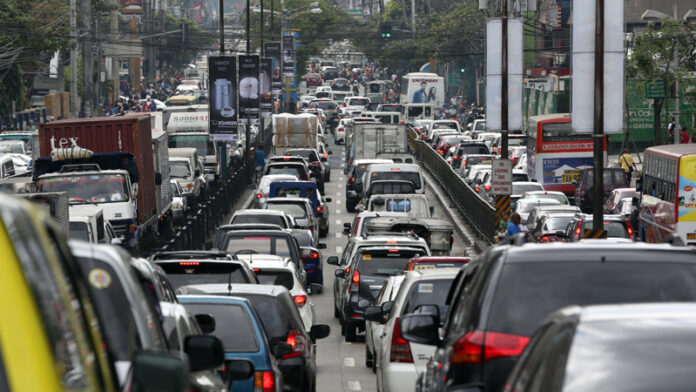A committee of the House of Representatives in the Philippines concluded its 10th and last hearing on the proposed Traffic Crisis Bill.
The measure being considered by the House committee on transportation seeks to grant emergency powers to President Rodrigo Duterte to address the traffic crisis in the country.
The committee chaired by Rep. Cesar V. Sarmiento (Lone District, Catanduanes) concluded its hearings and consultations with several findings, notable among them: the traffic crisis is concentrated in metropolitan areas only, particularly in Metro Manila and nearby Metro Cebu and Davao City; and the crisis is limited to land transportation.
Other committee findings were: in resolving the traffic problem, many are at risk of being displaced; there is a need to harmonize various traffic laws and traffic regulatory powers; inter-agency cooperation is a must; driver competence and vehicle roadworthiness are vital; the mass transport system should be improved all over the country, and not just where the crisis exists; and immediate solutions may be implemented at once even in the absence of a Traffic Crisis Act or any emergency powers.
These findings are the reasons why the committee wanted foremost to limit the scope of the bill to the particular areas mentioned and to cover only land transportation.
Sarmiento said in crafting the bill, they will also the support the mechanisms for those who will be displaced in the form of existing programs of various government agencies, among them the Department of Social Welfare and Development (DSWD), Technical Education and Skills Development Authority (TESDA), Department of Labor and Employment (DOLE), Philippine Overseas and Employment Administration (POEA), Development Bank of the Philippines (DBP), Department of Education (DepEd) and Commission on Higher Education (CHED).
Sarmiento further said that a single traffic authority and unified traffic system are also needed and must be supported by all concerned agencies and local government units (LGUs) working in unison.
Lawyer Maria Paula Domingo of the Department of Budget and Management (DBM) Legal Service said that in reference to the Supreme Court rulings on the Belgica case or the Priority Development Assistance Fund (PDAF), Malampaya Fund and the Presidential Social Fund, the funding provision for the proposed emergency powers should contain a determinable amount of what is needed, its specific public purpose, and specific fund sources.
The DBM Government Procurement Policy Board-Technical Support Service (GPPB-TSS-DBM) likewise conveyed support for the bill but reminded that, as previously intended by Congress, there should be one legal framework on government procurement, with the existing emergency procurement coverage under the law to be revisited and further studied.
The Commission and Audit (COA), for its part, vowed to assist the Department of Transportation (DOTr) to ensure that all its procurements conform to auditing rules of the COA.
The Department of Justice (DOJ), through OIC-Director Leilani R. Fajardo-Aspiras of the Administration and Finance Division, backed the crafting of emergency powers, citing Sec. 23, Par. 2, Art. 6 of the 1987 Constitution which provides: “In times of war or other national emergency, the Congress may, by law, authorize the President to exercise powers necessary and proper to carry out a declared national policy, for a limited period and subject to prescribed restrictions.”
Moreover, the DOJ suggested that the coverage of the emergency powers be limited to congested areas. It also said reorganized offices should conform to Republic Act 6656 (Security of Tenure Act) and to the people’s constitutional right to information and state policies on full public disclosure, transparency and accountability, and be time-bound.
Meanwhile, Interior and Local Government Assistant Secretary Ricojudge Echiverri said during a consultative meeting in their office, the LGUs conveyed their full cooperation with all measures that will be implemented to ease traffic.
Committee vice chairman Rep. Gavini C. Pancho (2nd District, Bulacan) and Rep. Luis A. Ferrer (6thDistrict, Cavite) welcomed the DOTr report that the agency’s ongoing and future projects would benefit their constituents. These projects include the extension of LRT line 1, MRT 7, North and South Railway upgrading and improvements, among others.
Rep. Carlos Isagani T. Zarate (Party-list, Bayan Muna) cautioned all related agencies to put the welfare of the people foremost in all their dealings. He disclosed the previous government’s questionable deal with two carmakers, Toyota and Mitsubishi, wherein the Aquino government, through Executive Order 182, supposedly gave a P27-billion incentive for them to produce 200,000 cars for the riding public instead of regulating the entry of private vehicles and resolving the ailing mass transport system.



